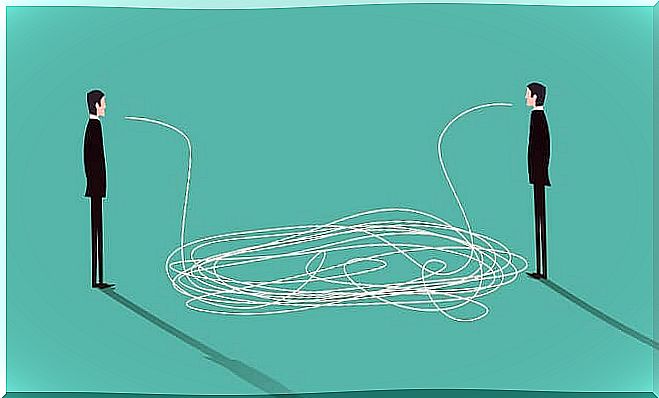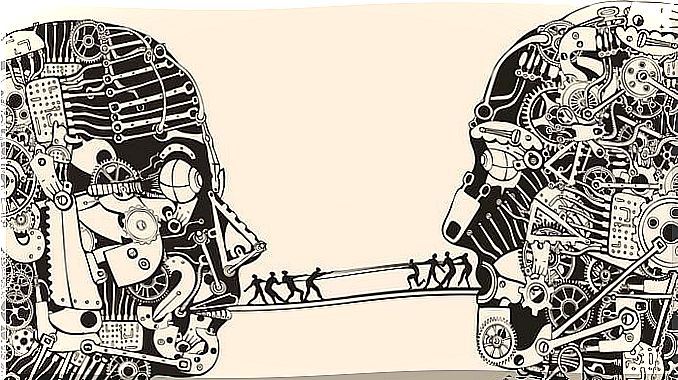Unspoken Agreements Can Have Bad Consequences
It is not smart to communicate in a vague way. Unfortunately, there are a lot of social and cultural mechanisms that allow us to leave messages in the air. Examples of this are implicit or unspoken agreements. Society determines the way we use words. Sometimes society does this to encourage good manners. But sometimes it’s just to make everyday use easier.
But often people do not know how to convey something because their own thoughts are not clear. In those cases, the inner communication fails. This then manifests itself in difficulty in expressing oneself.
Relationships can also influence these unfortunate forms of communication dynamics. People think they can say certain things to some people and not others. Almost all world powers declare that they have the right to demand silence. And they do. Sometimes they limit all aspects of the communication and sometimes only part of it. But this only leads to errors and confusion.
The bad aspects of unspoken agreements
Unspoken agreements are indirect forms of communication where one or both parties assume that the agreement is sufficiently clear. They think no further explanation is necessary. For example, suppose someone tells you that someone is knocking on the door. Then of course you know what that means – “go open.” You can read the message between the lines by deriving it from what was actually said.

Even in normal, everyday situations, unspoken agreements can end badly and cause misunderstandings. We continue with our previous example “someone knocks on the door.” This can mean different things depending on the context.
It can mean “it’s time to change the subject because someone is here.” Or it could mean “the person we are waiting for has arrived.” And it can even mean “watch out, there’s no reason there’s someone at the door, but someone is there, so that means there’s danger.”
Both participants in the conversation should also be in harmony. Because that’s necessary to interpret exactly what the other person means when he throws around unclear sentences that he thinks are clear. Misunderstandings would then be nothing more than silly stories. Unfortunately, they also occur in more complicated situations.
It can actually be disastrous when dealing with questions and desires. And this often happens. You want someone to do something for you but you don’t tell them. You assume they must understand. Moreover, you are then surprised that they do not realize what you want or need. But people can’t always understand what you mean and guess what you’re thinking. And that’s how conflicts arise.
Unspoken agreements
An understanding is essentially an agreement between two or more parties. Of course you can always make an agreement with yourself. But now we are talking more about social agreements. In an agreement, both parties promise to act in a certain way. People come to an agreement when everyone involved believes that a certain behavior will lead to a common goal.

But some people make the mistake of assuming there is an agreement when they have not directly consulted the other party involved. So that means things are never really confirmed. For example, they assume that if they always remember the other person’s birthday, the other person will always remember their birthday. Another assumption in humans is that if they prioritize the other person over themselves, they will in turn receive the same treatment.
People can come to any agreement with each other. But it’s bad when one person thinks an agreement has been made when in reality it isn’t. As in the examples in this article, it often occurs in terms of refunding a favor. But it can also happen in more complicated situations. We give a few examples. “Because I’ve suffered so much in my life, don’t make things difficult for me.” Or “because I believe I’m worth more than you, don’t criticize me.” Both of these assumptions can lead to bad consequences.
The best we can do is promote direct and clear communication. Things always get lost in the interpretation to some degree. But the risk multiplies when the message is unspoken, suppressed or printed. Making agreements in an explicit way and communicating your messages clearly and clearly can help you avoid many conflicts.










